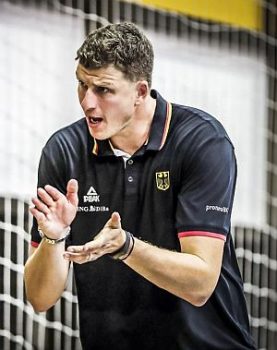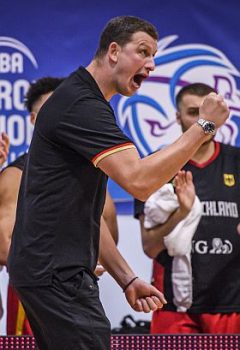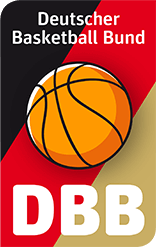- Lorem ipsum
- Dolor sit
- Amet Valputo
„“Eines der besten Turniere, das man in dem Altersbereich haben kann“
Als deutscher Rekordnationalspieler hast du bereits alles im Basketball gesehen: Welchen Stellenwert hat dieses Turnier für dich?
Das Albert Schweitzer Turnier ist eines der besten Turniere, das man in dem Altersbereich haben kann. Super international und hochkarätig besetzt, insofern freue ich mich natürlich, dass mein Team und ich daran teilhaben und Teil dieser Tradition werden können.
Was zeichnet die Mannschaft aus? Mit welcher Herangehensweise wollt ihr zum Erfolg kommen?
Wir wollen auf jeden Fall aggressiv und schnell spielen. Es wird wichtig sein, dass wir defensiv voll da sind. Darüber hinaus kommt es aber genauso darauf an, befreit aufzuspielen und den Ball flüssig zu bewegen. Das hat bei den vergangenen beiden Auftritten sehr gut funktioniert und ist natürlich auch unser Ziel. Mit der einen oder anderen Idee zusätzlich dazu hoffen wir dann auch erfolgreich zu sein. Dementsprechend machen wir uns selber Druck, unser Spiel so umzusetzen, wie wir es uns vornehmen. Wobei Druck immer relativ ist. Die eigenen Ansprüche sind wichtiger. Ob es wegen der letzten beiden Erfolge dazu auch Druck von außen gibt, ist uns dabei allerdings egal. Unser Job ist es, den Jungs die Möglichkeit zu geben, diese Erfahrung zu machen und ihnen Reize mitzugeben, die ihre Entwicklung fördern. Idealerweise geht es natürlich auch darum, jetzt schon Dinge einzubauen, die ihnen dann zum Sommer hin helfen werden.
Wie laufen die Vorbereitungen auf so ein Jugendturnier ab?
Wir haben vom 06. bis zum 10. April Zeit zu trainieren. Das ist nicht allzu lange, weil wir ja auch nicht jeden Tag zehn Stunden in der Halle hängen und Inhalte pauken können. Aber arbeiten werden wir natürlich im mannschaftstaktischen und individuellen Bereich. Man muss die Jungs einerseits zu einer Einheit formen, sie andererseits aber auch da abholen, wo sie stehen und an den Dingen arbeiten, die sie brauchen. Die Zeit ist also kurz, aber intensiv.
Wer sind auf dem Weg zur Titelverteidigung die größten Herausforderungen/Konkurrenten?
Es nehmen so viele gute Mannschaften teil, ich würde da niemanden explizit herausstellen wollen. Die Anderen sind die Favoriten und wir werden als Underdog gut spielen (lacht).

Ich denke, dass alles näher zusammengerückt ist. Natürlich haben die Serben, die Türken oder auch die Spanier ein paar Jahre Vorsprung was Idee und auch Umsetzung in ihrer Jugendarbeit angeht. Aber mittlerweile sieht man auch bei allen anderen Fortschritte. Die Mannschaften sind inzwischen taktisch und technisch besser ausgebildet, physisch stärker und damit insgesamt einfach besser. Vielleicht kann man hier Großbritannien nennen, die letzten Sommer mit ihrer U18 und U20 sehr gute Leistungen abgeliefert haben. Aber wie gesagt, der Basketball entwickelt sich hier generell super weiter und das macht es gerade so spannend.
Was sind die größten Unterschiede zwischen der Arbeit mit Nachwuchs- und Seniorennationalspielern? Worauf legt ihr bei der Ausbildung der Spieler das Hauptaugenmerk?
Es geht im Jugendbereich immer um Entwicklung. Natürlich will man gewinnen und Medaillen einheimsen. Aber am Ende des Tages kommt es darauf an, dass wir so sichten, dass die Jungs irgendwann den Schritt in die A-Nationalmannschaft gehen und diese auch verstärken können. Das passiert natürlich nicht in Eigenregie und auch nicht willkürlich, sondern ist das Resultat vieler Gespräche, Beobachtungen und gesammelter Informationen. Es geht nicht darum, einfach die zehn besten Scorer aus der NBBL einzuladen. Vielmehr hat man immer den einen oder anderen dabei, bei dem dieser Weg vielleicht etwas leichter zu prognostizieren ist. Aber es ist immer wichtig, Augen und Ohren offen zu halten und auch diejenigen zu Gesicht zu bekommen, die bis dato eventuell noch nicht so im Fokus standen. Die Zeiträume bei der Nationalmannschaft sind natürlich immer relativ kurz. Trotzdem haben wir den Anspruch an uns, allen hier eine Plattform zu bieten um sich zu zeigen und zu entwickeln.
English version
Patrick Femerling is the player with the most appearances for the German national team in history and current coach of the U18 men’s team. In April, his team will be competing in the traditional Albert Schweitzer Tournament in Mannheim and Viernheim. We had the opportunity to talk to him about his work and the preparations for the tournament.
Being the record holding player for appearances for the German national team, you have seen it all in the basketball world: what significance does this tournament have for you?
The Albert Schweitzer Tournament is one of the best competitions you can have in this age group. Super international and stacked with top-class talent. So of course me and my team are really looking forward to being able to participate here and become a part of this tradition.

We want to be aggressive and play fast. It is going to be crucial to lock in on defense. But then it is also about playing freely on the offensive end and moving the ball around well. That has worked a great deal for our last two teams and will of course be our goal also. With the one or the other additional idea to come into play we are hoping to be successful as well. So we are putting pressure on ourselves to perform the way we are aiming to do. Pressure is always relative though. And whether there is added outside pressure due to the previous two victories is not our concern. Our job is to give the guys the opportunity to make these experiences and trigger their development. Ideally it will also be about doing the work that is going to help them come the summer.
How do preparations for such a tournament go down? As in National Team’s practice colliding with school and club team’s practice times?
We have time to practice from April 6 to 10. That is not too much time because we will not be able to hang in the gym for ten hours a day and work out. But we will of course be working on team tactics as well as with each player individually. You have to bring the guys together and form a bond and on the other hand also meet everyone where they are and work on the things they need to work on. So the time is going to be short but intense.
Who are your main rivals on your way to a title defense? What other teams will pose the greatest threat?
There are so many good teams taking part, I would not want to single anyone out. The others are the favorites and we are going to do a good job as underdogs (laughs).
What do other Associations do particularly well? Who has improved the most in the last years?
I think everything has come closer together. Of course Serbia, Turkey and Spain have a certain head start concerning ideas and realization in their youth development. But you can clearly see progress with everyone else now. The teams are tactically and technically more skilled, physically stronger and therefore just better overall. Maybe you could name Great Britain, who did an excellent job with their U18 and U20 last summer. But as I said, basketball is developing in general and that is what makes it so exciting.
What are the main differences between working with youth and adult players? What is your main focus on when developing and teaching younger players?
In the youth sector it is about development. Yes, you do want to win and earn medals. But at the end of the day, we have to scout so that the guys can one day make the step to the A-team and try and improve them. That is not a one man job, neither is it arbitrary. It is always the result of many conversations, studies and gathered information. It is not about inviting the ten leading scorers from the NBBL and going from there. You much rather have the guys with a more predictable path to top level here and there. But you always have to keep your ears to the street as well and have your eyes on those players that have not been in the spotlight as much. Developments take different routes. The periods with the national team are relatively short. Nonetheless, we expect ourselves to give everyone a platform to showcase their talent and grow as players.

